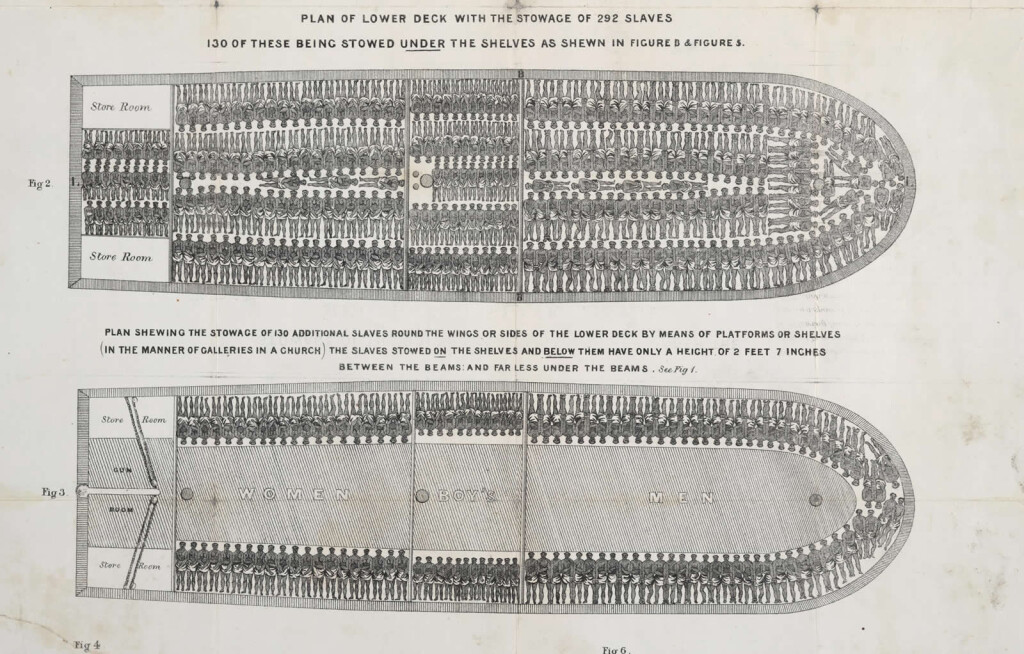
click image to enlarge
Planning diagram of a slave ship. More info: https://en.wikipedia.org/wiki/Slave_ship
Parashat Mishpatim/Rosh Hodesh/Sh’qalim
Exodus 21:1-24:18
The cruel and immoral institution of slavery is allowed to continue to function within limits established in our Torah portion. We have discussed some ways of seeing our Torah as paving the way to its eventual elimination (- see Sparks for 2015 and 2017). Most of us have thankfully moved forward to see slavery as the evil that it is. Yet the abolition of slavery in this country, over 150 years ago, has not washed away its stain or its human and societal damage. Indeed, some segments of our nation have repeatedly – and often with great success – tried to obstruct the full acceptance of people of color into our communities in various deviously conceived ways, enshrined and supported by new laws.
The national legacy of slavery and oppression still weighs heavily on us. Yet, I believe that our Torah portion can help us in embracing our responsibility to confront this history and do something about it. I do not look to the laws of slavery, themselves, but to another set of laws in our text. These laws deal with the responsibilities of guardians – shomrim. Put simply, whenever someone agrees to watch over anything belonging to someone else, their responsibility for ensuring the safe and complete return of that object or being is directly related to the benefit the guardian may have derived from having temporary possession of it. If the guardian was simply doing a favor but derived absolutely no benefit from the object or being in their custody, then they bear no responsibility for any damages or losses that may have happened, unless they were caused by gross malfeasance. But, if the guardian was allowed to use and benefit from the safeguarded object or being, then the guardian is responsible even for accidental damage or loss.
Let us recognize that the enforced slavery of millions could not be wiped away simply by ending slavery legally. The “white” segment of the United States has derived enormous benefit from the labor and manipulation of the Black community. That means that returning freedom to the Black community is not the end of our responsibility. We are also responsible for any damages that have occurred (and/or that we have inflicted) on our watch. And the damages are profound and enduring. The question is not whether we are responsible to pay reparations for those damages. The only serious questions are about how to do so in an effective way that will be restorative for the damaged community and atoning for the community that arrogated for itself the power to rule over others and the power to hold on to the benefits that wrongly accrued to it.
Will we accept the responsibility to be Shomrei Emunah – faithful and honest guardians?
Shabbat Shalom v’Hodesh Tov,
Rabbi David Greenstein
Subscribe to Rabbi Greenstein’s weekly d’var Torah
Photo in the public domain. https://en.wikipedia.org/wiki/Slave_ship
Thank you to John Lasiter for suggesting the title and selecting an image for this Torah Sparks – Rabbi Greenstein
- Toby Stein: In Memoriam - Thu, Feb 8, 2024
- Faithfulness and Hope: Parashat Sh’lach - Thu, Jun 23, 2022
- Past Their Prime: Parashat B’ha`a lot’kha - Thu, Jun 16, 2022
